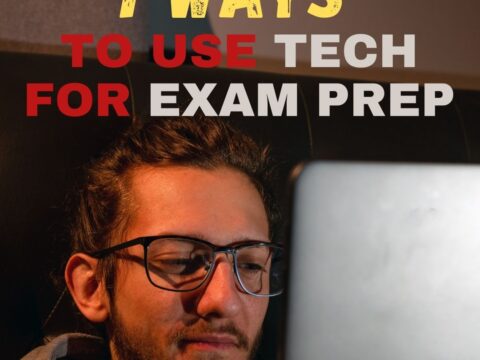I am a lifelong learner. I find great joy in discovering something new and connecting it to what I know. This is made easier because I received a good foundation in my school years in how to learn. The Ask a Tech Teacher crew has ideas on those skills that will not only serve you well in your academics but beyond:
4 Highly Important Study Skills to Develop During College and Beyond
We spend a lifetime learning, so it makes sense to develop a few study skills that will make our lives easier. Plus, some of these skills will help you have a successful career and even stay ahead.
Today, we’ll talk about 4 of these highly important skills and how to achieve them while you’re still in college.
1. Time Management
Time management is a vital skill to master as it helps you stay organized, meet deadlines, and maintain a healthy work-life balance. Here’s how you can develop effective time management skills and turn it into a reliable habit:
- Prioritize tasks – Learn to prioritize the most important tasks based on urgency and importance. Use tools like to-do lists or task management apps to keep track of assignments, projects, and other commitments.
- Learn to set realistic goals – Break down large tasks into manageable subtasks and set specific, achievable goals with deadlines. This approach prevents overwhelming feelings and provides a clear focus for each study session.
- Understand the power of a schedule – Develop a daily or weekly schedule that allocates specific times for studying, attending classes, completing assignments, and personal activities. Consider factors like peak productivity times, energy levels, and external commitments when creating your schedule.
- Stay away from multitasking – Multitasking can actually decrease productivity since you have to switch between tasks constantly. Therefore, it’s best to learn how to focus on one thing at a time.
2. Self-Motivation & Critical Thinking
Self-motivation is a skill that will come in handy many times in your lifespan. Everything you want to accomplish, from buying a house to starting a business, requires some type of self-motivation.
Plus, when you combine self-motivation and critical thinking, you have a skill set that’s difficult to ignore. These two skills will take you wherever you want to go, whether it’s acing your CFA exam or becoming a best-selling author.
To acquire these skills, surround yourself with positive influences and seek support from friends, family, or mentors who can encourage and motivate you. Practice positive self-talk and visualization techniques to maintain a focused mindset. Stay disciplined, organized, and maintain a growth mindset that sees challenges as opportunities.
In time, you’ll learn that no task is too difficult (even if you have to tackle the leading prep courses for CFA level 3). You just have to change your mindset and approach the task from a different angle.
3. Active Listening
Active listening is a communication skill that involves fully engaging with a speaker and being fully present in the moment. It goes beyond simply hearing words but focuses on understanding the speaker’s message, intentions, and emotions.
Active listening requires concentration, nonverbal cues, and responses that demonstrate your attention and comprehension. So it’s quite a difficult skill to master, especially if you don’t understand its implications.
To actively listen, you should give the speaker your undivided attention through eye contact, nodding, or providing occasional verbal affirmations. Avoid interrupting or formulating responses while the speaker is still talking to ensure you understand their complete message.
You should also ask questions for clarification or elaboration to ensure a deeper understanding of the topic. This approach encourages open dialogue and shows your genuine interest in what the speaker has to say.
When you’re focused on improving this skill, you also improve communication, build stronger relationships, gain valuable insights from others’ perspectives, and foster an environment of respect and understanding.
4. Learn How To Learn
Learning how to learn is one of the most important skills you’ll ever acquire because it can be applied all throughout your lifespan in a wide range of situations and scenarios. You’ll also become more efficient in achieving your goals and a lot more productive.
Start by reflecting on your current learning process. Take time to reflect on your learning experiences and evaluate what methods work best for you. Consider the strategies or techniques that have been most effective in retaining information and understanding concepts.
Continue by experimenting with different study techniques and identify those that yield the best results for you. This may include active reading, summarizing material in your own words, creating flashcards, utilizing mnemonic devices or mind maps, or teaching concepts to someone else.
One of the aspects that make learning a fun experience is curiosity. Work to cultivate a curious mindset by posing questions about what you’re learning. Seek clarification when needed and engage in discussions or debates with classmates or instructors to deepen understanding.
Wrap Up
All the skills mentioned above will help you move at a faster pace through your professional life and gain some well-deserved advantages. So if you want to be successful, it’s best to focus on developing them as early as possible.
Here’s the sign-up link if the image above doesn’t work:
Jacqui Murray has been teaching K-18 technology for 30 years. She is the editor/author of over a hundred tech ed resources including a K-12 technology curriculum, K-8 keyboard curriculum, K-8 Digital Citizenship curriculum. She is an adjunct professor in tech ed, Master Teacher, webmaster for four blogs, an Amazon Vine Voice, CSTA presentation reviewer, freelance journalist on tech ed topics, contributor to NEA Today, and author of the tech thrillers, To Hunt a Sub and Twenty-four Days. You can find her resources at Structured Learning.






































